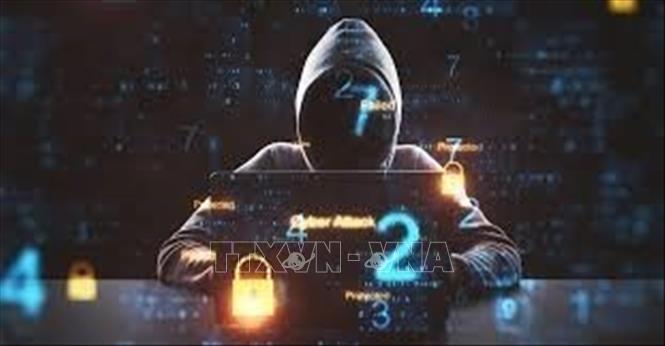
Cybercrime has become a pressing global issue and is growing faster than ever. (Photo: VNA)
Significant progress has been made in ensuring cybersecurity.
Cybercrime is rapidly evolving, cross-border, and attacks across multiple sectors, from fraud and theft to data breaches and sabotage of critical infrastructure such as finance, banking, energy, healthcare , transportation, and even public administration systems. This is a reality and a challenge that no country, whether developed or developing, can face alone in this arduous battle.
Therefore, the United Nations Convention is a necessary step to strengthen coordination mechanisms among countries in combating cross-border cybercrime. The UN's choice of Hanoi as the venue for the signing ceremony of the Convention demonstrates the international community's trust in and recognition of Vietnam's proactive role in promoting the building of a safe, transparent, and responsible cyberspace.
Despite being a developing country gradually transitioning to the digital economy , Vietnam has made significant progress in recent years in building a legal framework for cybersecurity, protecting personal data, and cooperating closely with international organizations to combat high-tech crime.
Technological development, innovation, and digital transformation are key options for realizing national aspirations. These are the "golden keys" that will help Vietnam overcome the middle-income trap, avoid falling behind, and catch up with the times. However, this development must go hand in hand with ensuring cybersecurity, data security, and information safety.
To realize this vision, the Vietnamese Party and State have issued and led many important policies. Notable examples include Resolution 29 on the Strategy for Protecting the Homeland in Cyberspace and Resolution 30 on the National Cybersecurity Strategy. The establishment of the National Steering Committee for Cybersecurity, chaired by the Prime Minister, demonstrates the special attention given by the Vietnamese Government.
The legal framework for cybersecurity has been gradually improved. The National Assembly has enacted a series of important laws such as the Cybersecurity Law, the Data Law, and the Personal Data Protection Law. The establishment of the National Cybersecurity Association has also contributed to strengthening coordination among agencies, businesses, and the community.
In Resolution 57 of the Politburo on innovation, scientific and technological development, and digital transformation, cybersecurity has become a cornerstone that runs parallel to the overall development process of the country. The Party and the State always attach great importance to and pay special attention to the fight against cybercrime, especially in the current period of national digital transformation.
Major General Le Xuan Minh, Director of the Cyber Security and High-Tech Crime Prevention Department (A05 - Ministry of Public Security), stated that Vietnam is implementing and perfecting its legal system related to cybercrime. The goal is to build a legal framework that meets both domestic and international standards, aligning with international regulations and creating the most favorable conditions for domestic and international businesses to be best protected in the investment and scientific and technological development environment in Vietnam. Simultaneously, efforts are being made to build and improve the capabilities of the forces involved in ensuring cybersecurity. These key and urgent tasks are being implemented to best secure cyberspace, serving the national digital transformation process.
In line with the spirit of "leaving no one to face cybercrime alone," over the years, Vietnamese authorities have demonstrated determination and concerted efforts to protect citizens in cyberspace, especially vulnerable groups, children, and teenagers, from online threats. Regarding policies and laws, the State has issued and is gradually improving many important documents such as: the Law on Children, the Law on Cybersecurity, the National Strategy for Protecting Children in the Online Environment for the period 2021-2025, along with inter-ministerial decrees and circulars aimed at strengthening the detection and handling of high-tech crimes. This is evidence of the consistent policy of the Party and State in the strategy of developing a safe and humane digital society and human resources.
Solving the problem of preventing and combating transnational crime.
In addition to improving the legal framework, the enforcement capacity of law enforcement agencies is also being enhanced to meet the demands of the digital age.
Specialized units responsible for cybersecurity and high-tech crime have been receiving significant investment in personnel, equipment, and skills. Intensive training courses and collaborative training programs with foreign countries are continuously implemented, helping staff keep pace with technological advancements and new criminal tactics. This force is deployed from the central level to the grassroots, forming a widespread network. Thanks to this network, many cross-border cybercrime rings have been dismantled.
In just the past few years, Vietnamese police have cracked many notable cybercrime cases, from dismantling multi-trillion-dong online gambling rings linked across multiple countries to arresting international hackers who attacked Vietnamese businesses. This is proof of the increasingly high level of competence and capability of Vietnam's law enforcement forces in this field.
However, the pressing issue is how to completely dismantle similar cross-border criminal gangs. The challenge is significant. Cybercrime is largely clandestine and difficult to trace; many criminal networks are organized across borders, operated from abroad, and exploit legal loopholes between countries.
The answer lies partly in the efforts to implement the Hanoi Convention. This provides Vietnam, as well as other countries around the world, with additional legal tools and international cooperation capabilities to ensure safety and security in cyberspace.
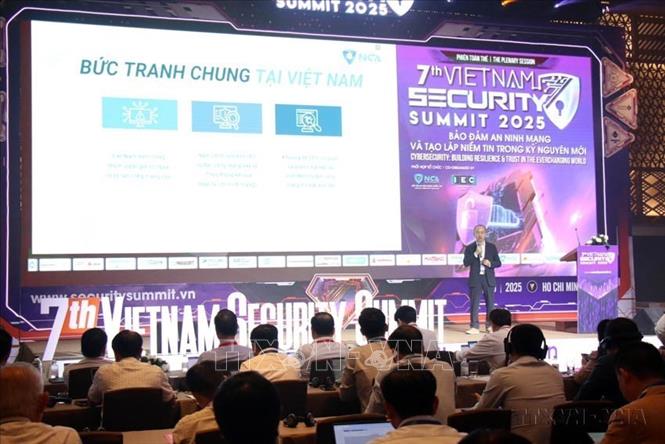
Experts from the National Cybersecurity Association shared an overview of Vietnam's cybersecurity resources at the International Conference and Exhibition on Cybersecurity themed "Ensuring Cybersecurity and Building Trust in the New Era" (May 23, 2025). Photo: Tien Luc/VNA.
Building a "people's security posture in cyberspace"
According to a report published by the National Cyber Security Association (NCA) at the end of 2024, Vietnam is among the countries heavily affected by cybercrime. The rate of "potential victims" is also alarming: 1 in every 220 smartphone users becomes a victim, and 70% of the population receives at least one phishing call or message every month.
Lieutenant General Nguyen Minh Chinh, Permanent Vice Chairman of the National Cybersecurity Association, stated that large-scale cyberattacks targeting critical national infrastructure, businesses, and citizens are becoming increasingly sophisticated and rapid. In addition, the spread of fake news and harmful information on digital platforms, exploiting artificial intelligence for rapid dissemination, is also increasing. High-tech crimes such as fraud, data trading, and even drug and weapons trafficking in cyberspace are becoming increasingly complex.
Mr. Nguyen Minh Chinh emphasized that while the legal framework for cybersecurity has been established and is becoming increasingly完善 (perfected), it has not kept pace with the speed of technological development. The awareness of some officials, businesses, and citizens remains limited, creating loopholes that are easily exploited. Domestic technological infrastructure lacks synchronization and relies heavily on imported solutions, further increasing the risks.
"Therefore, the Hanoi Convention not only opens up opportunities for Vietnam to strengthen international legal cooperation and enhance its capacity to combat cybercrime, but also serves as a foundation for raising awareness among the entire political system, the people, and businesses in ensuring security and safety in cyberspace," Mr. Nguyen Minh Chinh stated.
When public awareness and vigilance are not uniform, relying solely on specialized law enforcement agencies is insufficient to cover everything. Therefore, mobilizing the strength of the entire population is the most sustainable and effective solution. Consequently, building a "people's security posture in cyberspace" is extremely important.
Regarding the development of organizational models for the nationwide movement to protect national security in cyberspace, in the context of comprehensive digital transformation, many localities have proactively innovated the way they organize the movement by integrating traditional models at the grassroots level with digital platforms and information technology tools. This is an important shift from "direct activities" to "digital organization," reflecting the movement's adaptation to new social behaviors in cyberspace.
Familiar models such as "Security Cameras," "Self-governing Security and Order Teams," "Safe Neighborhoods," "School Security," and "High-Tech Crime Prevention" have been partially or fully digitized through connections with social networks, messaging applications, monitoring software, and online community interaction. Through this, cyberspace has become an integral part of the movement's operation, contributing to improved monitoring capabilities, early warning systems, and the mobilization of citizens to participate in security protection remotely, anytime and anywhere. These models not only enhance the core role of the police force but also expand the proactive participation of the people in the digital space, gradually building a nationwide movement to protect national security in cyberspace, tailored to specific areas, target groups, and real-world situations.
With the goal of building a safe and civilized online community, where each citizen is a "fortress" in protecting the country's "digital borders," the Government is continuing to mobilize the combined strength of the community and all citizens through the Project on building a people's security posture in cyberspace.
Source: https://baotintuc.vn/thoi-su/cong-uoc-ha-noi-giai-bai-toan-toi-pham-xuyen-quoc-gia-xay-dung-the-tran-an-ninh-nhan-dan-tren-khong-gian-mang-20251022160135073.htm









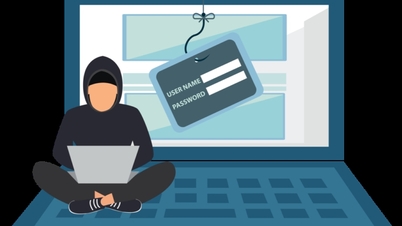


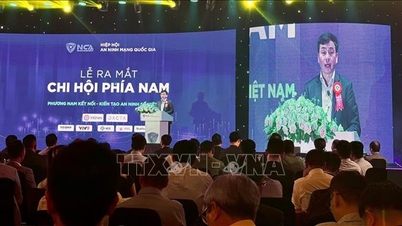
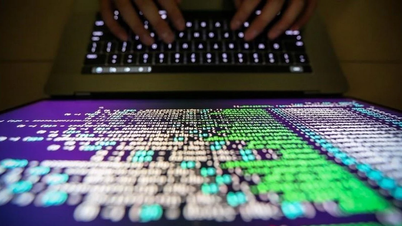






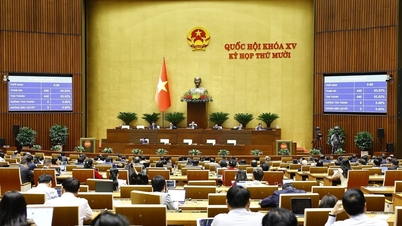




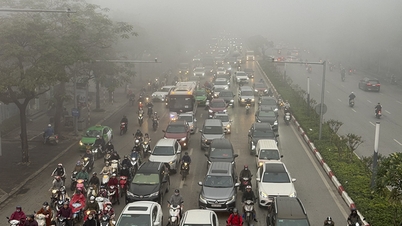




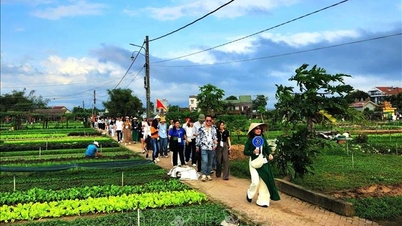

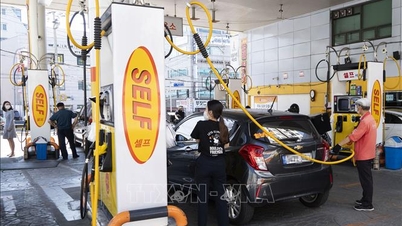
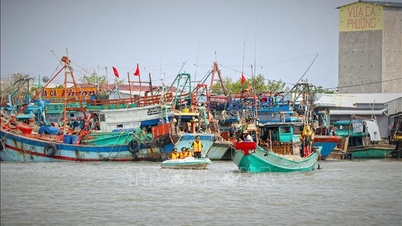

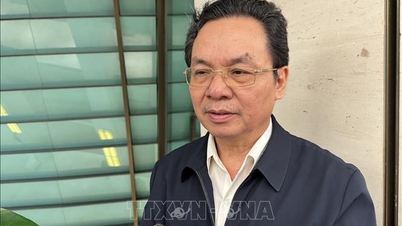





![[Video] The craft of making Dong Ho folk paintings has been inscribed by UNESCO on the List of Crafts in Need of Urgent Safeguarding.](https://vphoto.vietnam.vn/thumb/402x226/vietnam/resource/IMAGE/2025/12/10/1765350246533_tranh-dong-ho-734-jpg.webp)





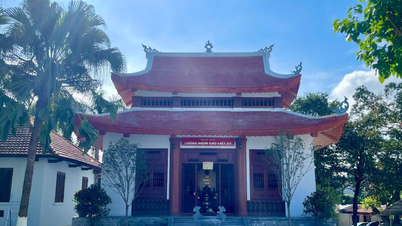




























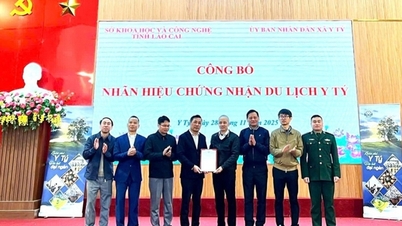






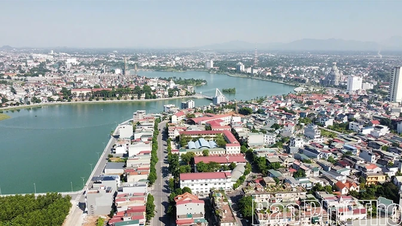




















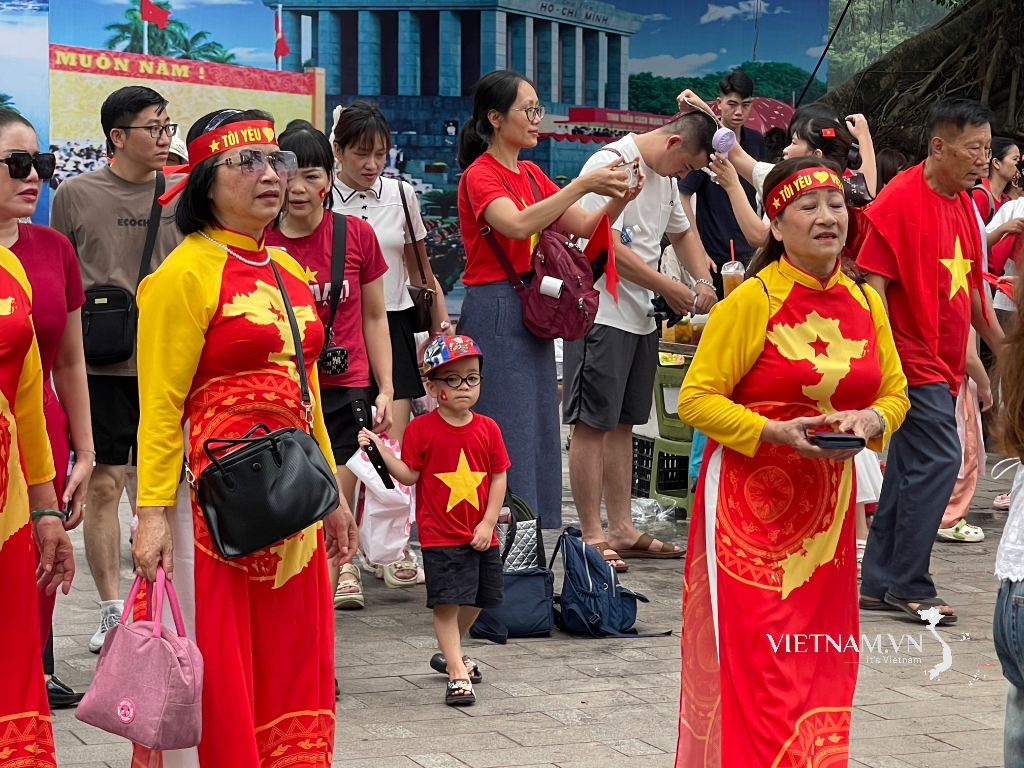




Comment (0)